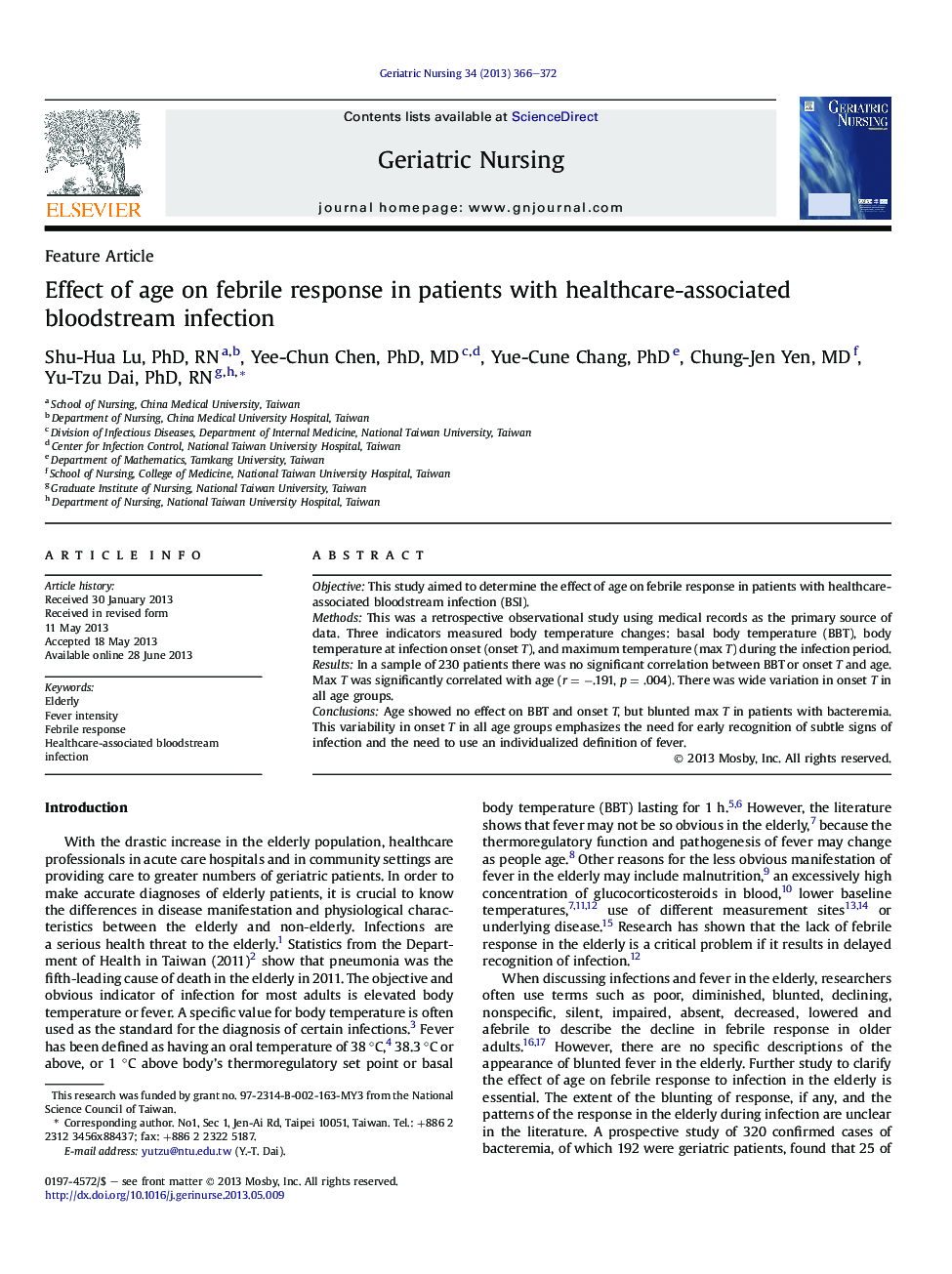| Article ID | Journal | Published Year | Pages | File Type |
|---|---|---|---|---|
| 2650182 | Geriatric Nursing | 2013 | 7 Pages |
ObjectiveThis study aimed to determine the effect of age on febrile response in patients with healthcare-associated bloodstream infection (BSI).MethodsThis was a retrospective observational study using medical records as the primary source of data. Three indicators measured body temperature changes: basal body temperature (BBT), body temperature at infection onset (onset T), and maximum temperature (max T) during the infection period.ResultsIn a sample of 230 patients there was no significant correlation between BBT or onset T and age. Max T was significantly correlated with age (r = −.191, p = .004). There was wide variation in onset T in all age groups.ConclusionsAge showed no effect on BBT and onset T, but blunted max T in patients with bacteremia. This variability in onset T in all age groups emphasizes the need for early recognition of subtle signs of infection and the need to use an individualized definition of fever.
